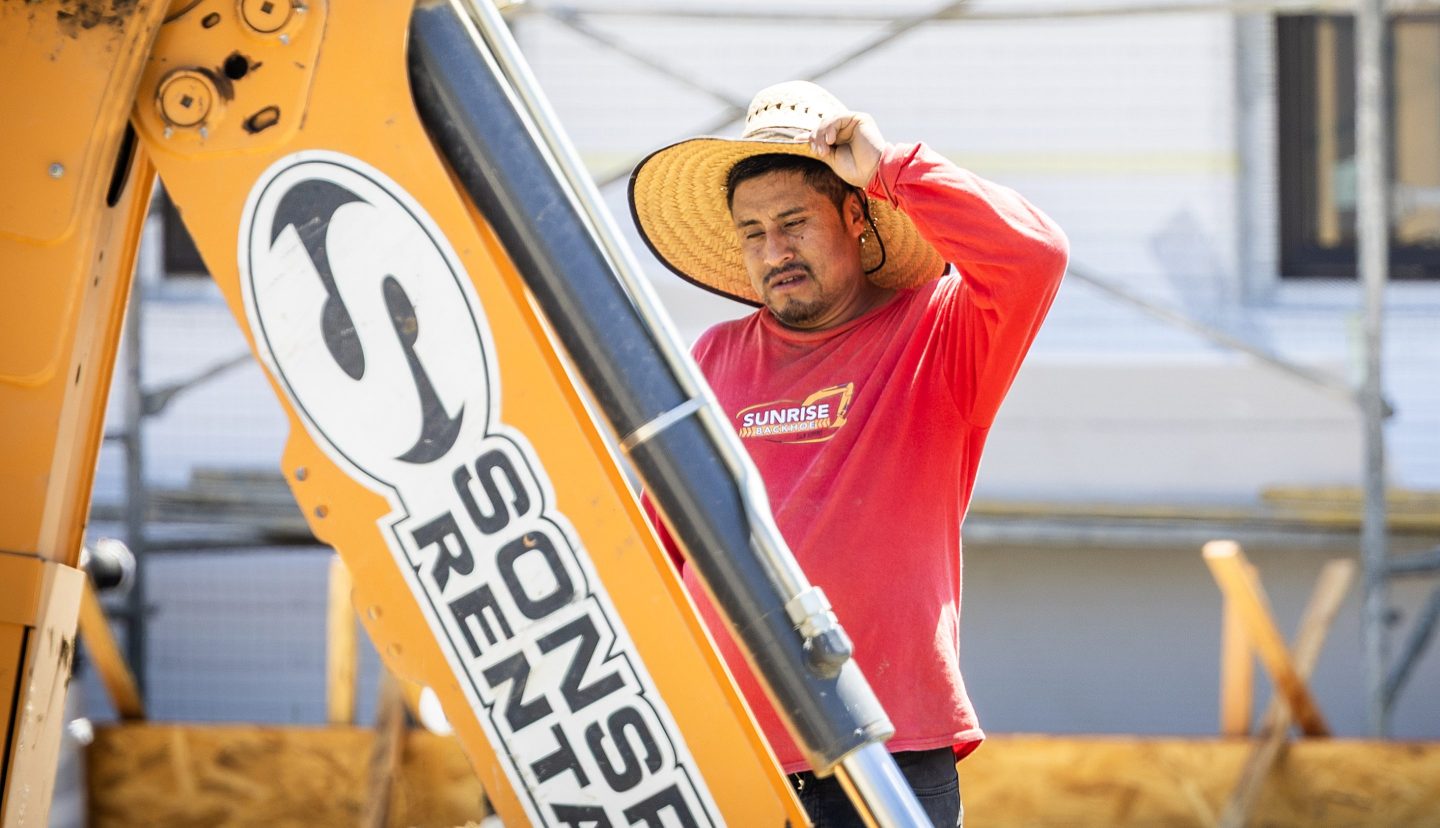On construction sites across Baldwin County, Ala., workers are vanishing mid-shift. Not because they quit, but because immigration agents hauled them away—the “God-fearing, family-oriented” laborers who braved blistering summer heat on rooftops to support their families.
Now, contractors warn the raids are deepening a labor shortage that already threatens the state’s economic prosperity: Even in Alabama, where 65% of voters backed President Donald Trump with immigration as a top campaign issue.
Russell Davis, executive vice-president of the Home Builders Association of Alabama, told Fortune the industry is already feeling the shock.
“We’ve had several situations where we’ve had job sites raided, for lack of a better term… and it is a cause of concern,” he said. “It’s definitely affected the labor market in general,” he added, with ripple effects beyond undocumented workers.
“There’s a lot of folks that are here legally, that have relatives that may not be, and it’s put everybody more in a defensive position,” Davis said.
Across the South, heightened ICE enforcement has been obvious on school sites and in store parking lots: a kind of visibility that is even more prominent than in Trump’s first presidency, Anirban Basu, a labor economist who tracks construction markets, told Fortune.
“For years, the U.S. construction industry has faced skills and labor shortages, even with significant participation from undocumented migrants,” Basu said. “This enforcement push is an economic shock: It drives up costs, delays investment, and leaves us with a lower-grade built environment.”
This summer alone, federal agents detained nearly 50 workers at Baldwin County school projects in Gulf Shores and Loxley, and 475 people at a Hyundai EV plant in neighboring Georgia. Contractors say crews are now working with “heads on a swivel.”
On the ground, that means blown schedules and thinner capacity.
“It’s definitely affected the ability… to get houses built in a timely fashion,” Davis said. “We’ve got huge gaps.”
Construction is infamous for missing deadlines, Basu said, but ICE enforcement adds even higher costs that can kill once-viable projects.
“When contractors must replace crews quickly, the documented workers they can find are often more expensive and harder to source,” Basu explained. “That squeezes margins and delays delivery.”
Still, he argued, the common claim immigrant workers “take jobs” from Americans doesn’t reflect reality.
“Look at who’s on the roofs of American homes—mostly immigrants,” Basu said.
“It’s dangerous, unpleasant work in the Alabama heat. The idea that an immigrant ‘takes a job’ is a zero-sum mistake.”
Part of the rethink comes from lived experience: Crews aren’t abstract statistics, but people they’ve come to know as “God-fearing and family-oriented.” That personal connection, Basu noted, often shifts attitudes. When people see the same immigrants on the roof or the drywall crew are also in the neighborhood raising families and paying taxes, harsh rhetoric tends to fade.
The White House didn’t respond to Fortune‘s request for comment.
Industry leaders are asking for a ‘work-visa’ program
Industry leaders aren’t asking for complete amnesty for their undocumented workers, particularly those who aren’t law abiding, but they’re asking for precision—and fast. After a summer of raids and vanishing crews, Davis said builders are rethinking blanket deportations in favor of targeted removals, plus a legal work channel for long-tenured, tax-paying workers. The ask: a renewable, employer-backed visa so vetted crews can stay on the job while non-law-abiding workers are removed.
“I can’t help but believe at some point that a work-visa program could be successful and help our industry and help our economy as well,” Davis said. “In today’s world, it’s probably pretty hard… but there’s got to be a way. We’ve got to step up to the plate and try to do the right thing for people who are trying to do right themselves.”
Builders, he added, will keep adjusting, “but we still have a gap between the folks that were here that aren’t here anymore and the young people we’re training.”
The economic stakes are immediate. Davis puts it bluntly: Alabama’s builders are running out of time—and out of workers—unless Washington moves from broad sweeps to a practical, legal path that keeps reliable crews on the job.












